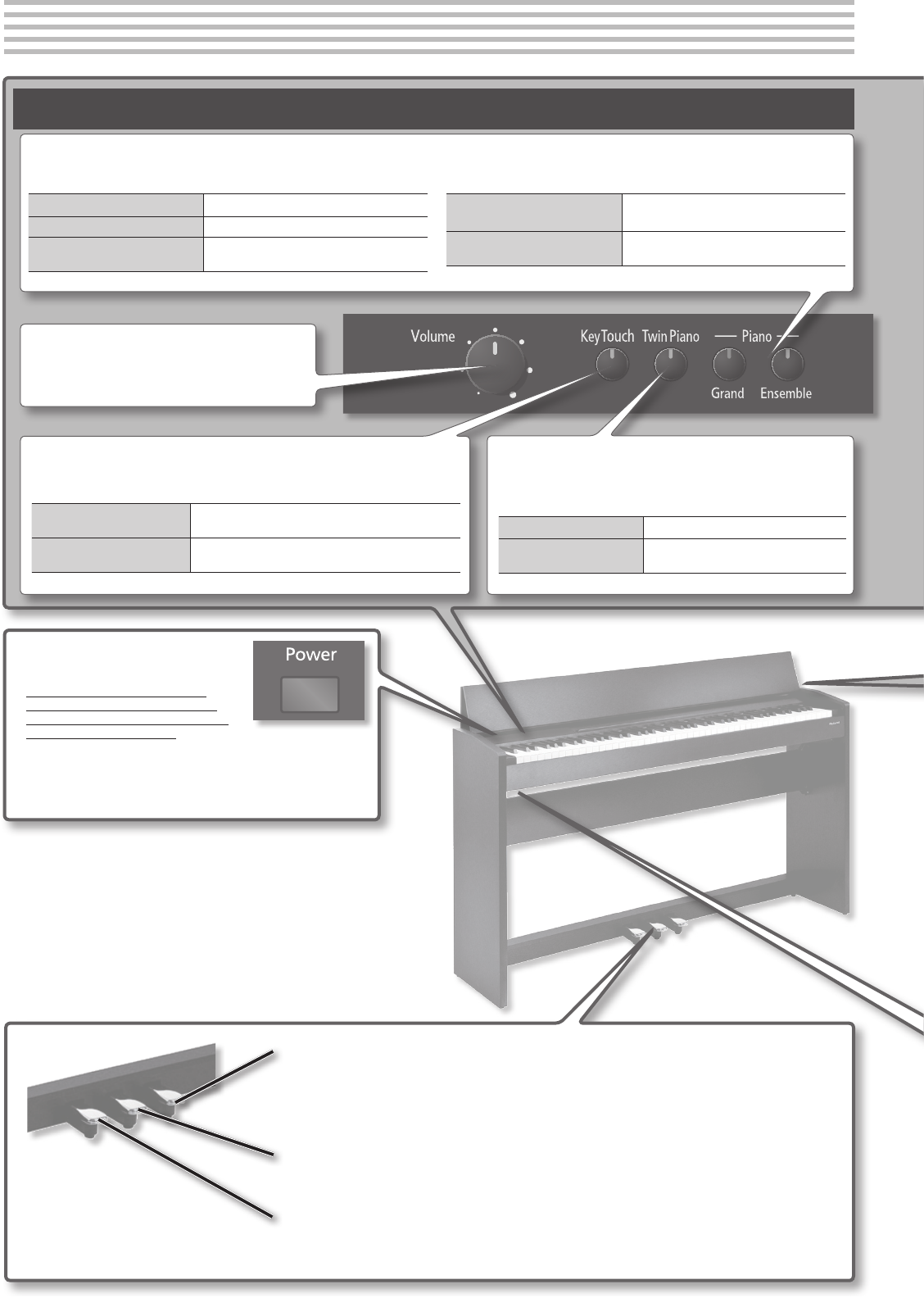
4
Panel Descriptions
Rear side
[Key Touch] button
This changes the touch sensitivity of the keyboard (p. 9).
To adjust the touch sensitivity
Hold down the [Key Touch] button and press the [–]
[+] buttons.
To select the standard touch
sensitivity
Turn o the [Key Touch] button.
[Twin Piano] button
This divides the keyboard into left and right sections so that two people
can play the same range of pitches (p. 8).
To enable Twin Piano mode Turn on the [Twin Piano] button.
To change how the sound is
heard (in Twin Piano mode)
Hold down the [Twin Piano] button and
press the [–] [+] buttons.
Front Panel
[Volume] knob
This adjusts the volume.
Piano [Grand], [Ensemble] buttons
Use these buttons to select tones (p. 7) or adjust the manner in which they are sounded (p. 9).
To adjust the reverberation
Hold down the [Grand] button and press the
[–] [+] buttons.
To adjust the brightness
Hold down the [Ensemble] button and press
the [–] [+] buttons.
To select a grand piano Press the [Grand] button.
To select various piano tones Press the [Ensemble] button.
To select other tones
Press [Grand] or [Ensemble] button, and then
press the [–] [+] buttons.
[Power] switch
This turns the power on/o (p. 6).
* With the factory settings, the unit’s
power will automatically be switched
o 240 minutes (4 hours) after you stop
playing or operating the unit.
If the unit’s power has been turned o automatically, you can use the
[Power] switch to turn the unit back on again.
If you don’t want the power to turn o automatically, change the “Auto
O” setting to “OFF” as described on “Making the Power Automatically
Turn O After a Time (Auto O)” (p. 15).
Damper Pedal
Use this pedal to sustain the sound. While this pedal is held down, notes will be sustained for an extended time even
if you release your ngers from the keyboard. The length of the sustain will change subtly depending on how deeply
you press the pedal. On an acoustic piano, holding down the damper pedal will cause the strings for notes other
than the ones you actually play to vibrate in sympathy with what you’ve played, producing a rich resonance. This unit
simulates this sympathetic vibration (damper resonance).
Sostenuto Pedal
This pedal sustains only the notes of the keys that were already pressed when you pressed the pedal.
Soft Pedal
This pedal is used to make the sound softer. Playing with the soft pedal depressed produces a sound that is not
as strong as when otherwise played with the equivalent strength. This is the same function as the left pedal of an
acoustic piano. The softness of the tone can be varied subtly by the depth to which you press the pedal.


















